
Medical staff Sanitas Alicante
Medical staff at Sanitas Alicante
Sanitas Alicante Medical Directory: How to access specialists and diagnostic tests
The medical directory in Alicante is an essential tool for policyholders in accessing healthcare services . This system allows them to identify the specialists and centers available according to their policy . Through a medical directory, patients can access various specialties and undergo the necessary diagnostic tests for their conditions. This guarantees adequate, high-quality medical care in the province.
What is a Medical Chart?
The medical directory is an essential tool in the healthcare field that allows policyholders to efficiently access various health services. This structure facilitates the identification of professionals and centers available for medical care.

Definition and Concept
A medical directory is defined as a list of doctors, specialists, and healthcare centers affiliated with a specific insurance company . This list allows policyholders to know who they can contact for care without incurring additional costs beyond their current insurance premium. In a context where medical care is fundamental to health and well-being, understanding how a medical directory works is vital.
Types of Medical Chart
Medical plans can be classified into two main categories: open and closed . Each has specific characteristics that affect how insured persons access health services.
Open Medical Team
An open medical plan allows policyholders to choose from a wide range of doctors and facilities, without significant restrictions. This includes both healthcare professionals from the same insurer and others outside their network. This flexibility gives patients greater freedom when selecting their primary care physician, specialists, and hospitals . This type of plan is highly valued by those seeking more options when receiving healthcare.

Medical Chart Closed
On the other hand, a closed medical plan limits the number of available options to a specific list of healthcare professionals and centers. In this format, policyholders must visit doctors and hospitals that are part of the insurer's network to receive care covered by their policy. This approach, although restricted, often means that patients enjoy more affordable prices and greater coordination among providers. This coordination can be beneficial for monitoring treatment and managing patient health.
Importance of a Good Medical Team in Alicante
A good medical team is essential to ensuring the quality of healthcare in Alicante. Adequate access to medical services can have a decisive impact on the health and well-being of the population.

Go to the Sanitas medical directory in Alicante
QuirónSalud Medical Team
Medical Staff at the HLA Vistahermosa Clinic

Quality of Medical Care in Alicante
The quality of medical care in Alicante is enhanced by the diversity of professionals and centers available. Access to a wide network of specialists allows patients to receive timely care tailored to their needs. A good medical directory includes:
- Prestigious medical centers
- Highly qualified specialists
- Advanced equipment and technology
- Comprehensive care programs
This ensures that any illness or condition can be treated effectively. The ability to access multiple medical disciplines improves overall patient care and reduces wait times, which is particularly critical in emergency situations.

Benefits for Insureds
Policyholders with a good medical plan in Alicante can enjoy a series of benefits that optimize their healthcare experience. Some of these benefits include:
- Access to Specialties: The variety of medical specialties available ensures that each patient can find the right care for their specific condition.
- Essential Diagnostic Tests: The availability of specialist diagnostic tests allows for more accurate and rapid diagnoses, which are essential for effective treatment.
- Personalized Care: The quality of care is enhanced by a patient-centered approach, where individual needs and concerns are considered.
- Cost Reduction: By being included in the medical plan, many services and treatments can be accessed at no additional cost, limited only to the payment of the insurance premium.
These benefits not only improve the patient experience but also contribute to better long-term health management. Preventive programs and early disease detection are facilitated by easy access to specialists. Therefore, a good medical team in Alicante becomes an essential pillar in the region's healthcare structure.

Medical Specialties in Alicante
The healthcare system in Alicante offers a remarkable variety of medical specialties. This allows patients to access services tailored to their specific needs. Below are the most notable specialties, along with the types of diagnostic tests performed and the conditions treated.
Cardiology
Diagnostic Tests in Cardiology
Cardiology focuses on the diagnosis and treatment of diseases of the heart and circulatory system. Common diagnostic tests include:
- Electrocardiograms (ECG).
- Echocardiograms.
- Stress tests.
- Holter monitoring.
- Coronary angiograms.
Pathologies Treated and Techniques Used
In cardiology, various pathologies can be treated such as:
- Heart failure.
- Arrhythmias.
- Coronary artery disease.
- High blood pressure.
- Congenital heart disease.
Techniques range from pharmacotherapy to interventional procedures such as angioplasty.

Dermatology
Diagnostic Tests in Dermatology
Dermatology deals with diseases of the skin, hair, and nails. Tests performed may include:
- Skin biopsies.
- Dermoscopy.
- Contact allergy tests.
- Skin and nail cultures.
Pathologies Treated and Techniques Used
Among the pathologies that can be addressed are:
- Skin cancer.
- Acne.
- Psoriasis.
- Dermatitis.
- Skin infections.
Techniques range from topical treatments to more advanced therapies such as phototherapy.

Gynecology and Obstetrics
Diagnostic Tests in Gynecology
This specialty performs tests that help maintain women's reproductive health, such as:
- Vaginal cytology (Pap smear).
- Pelvic ultrasounds.
- Pregnancy monitoring.
- Hormonal research.
Pathologies Treated and Techniques Used
Specialized gynecologists can treat conditions such as:
- Polycystic ovary syndrome.
- Endometriosis.
- Cervical pathologies.
- Fertility problems.
- Pregnancy complications.
Techniques range from in vitro fertilization to minimally invasive surgeries.

General and Oncological Surgery
Diagnostic Tests in General Surgery
General surgery addresses a variety of conditions that may require intervention. Diagnostic tests include:
- Endoscopies.
- Abdominal ultrasounds.
- Computed tomography (CT) scans.
- Magnetic resonance imaging (MRI).
Pathologies Treated and Techniques Used
Among the pathologies treated are:
- Appendicitis.
- Hernias.
- Gastrointestinal diseases.
- Oncological pathologies.
- Traumas.
The techniques used can vary from outpatient procedures to complex surgeries.
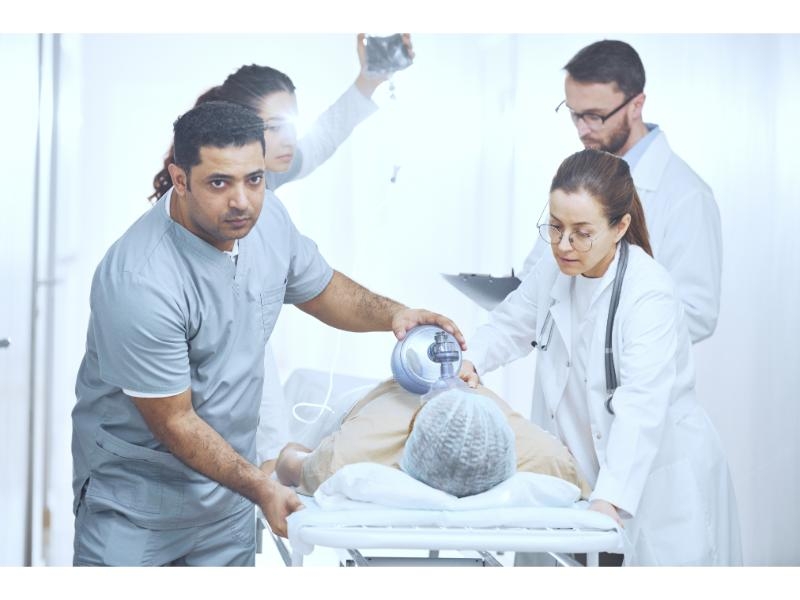
Neurophysiology
Diagnostic Tests in Neurophysiology
Neurophysiology studies the nervous system, and diagnostic tests include:
- Electromyography (EMG).
- Electroencephalograms (EEG).
- Evoked potential studies.
Pathologies Treated and Techniques Used
Conditions that can be diagnosed and managed in this area include:
- Epilepsy.
- Peripheral neuropathies.
- Sleep disorders.
- Multiple sclerosis.
The techniques invoke both therapeutic and rehabilitative measures to improve the patient's quality of life.
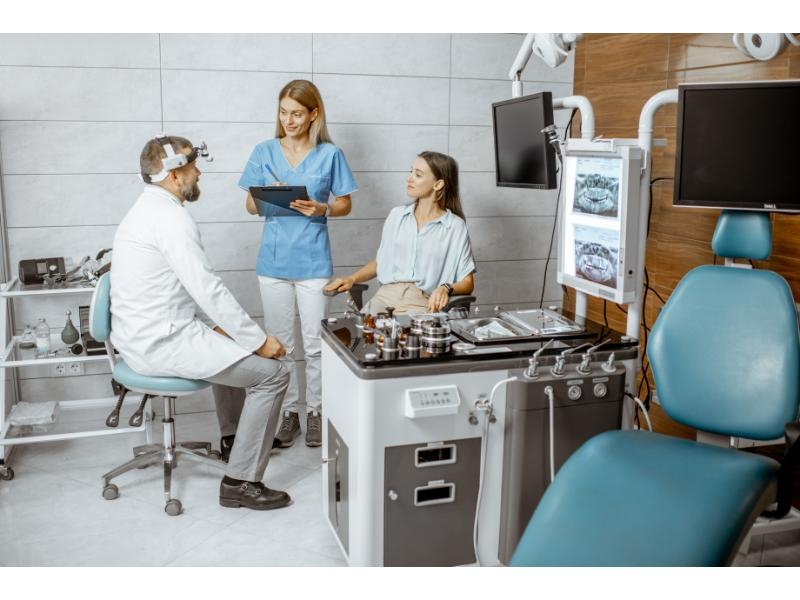
Dentistry
Diagnostic Tests in Dentistry
In dentistry, oral health is a priority, and diagnostic tests may include:
- Dental x-rays.
- Clinical examinations.
- Dental sensitivity tests.
Pathologies Treated and Techniques Used
Common pathologies treated in this specialty include:
- Dental caries.
- Periodontal disease.
- Dental infections.
- Malocclusions.
The techniques used include everything from extractions to root canal treatments and orthodontics.
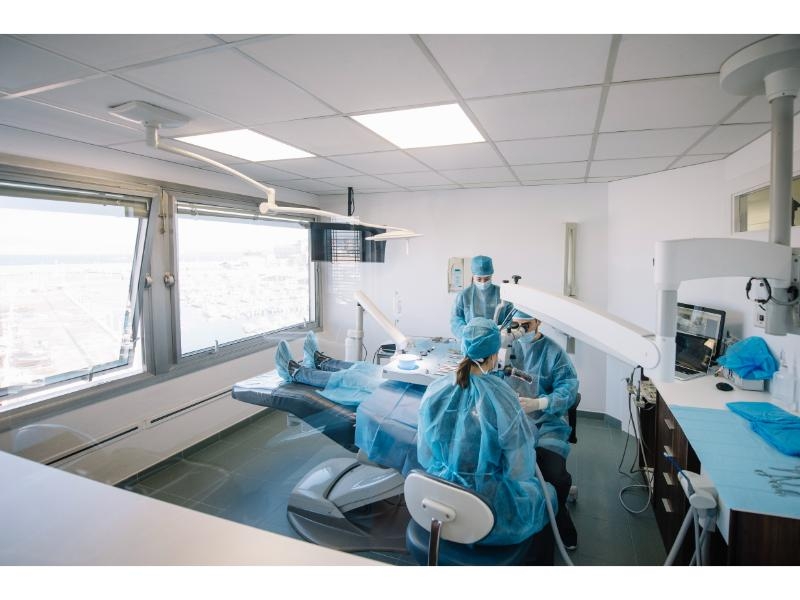
Allergology
Diagnostic Tests in Allergology
Allergology is crucial in addressing allergies and the following diagnostic tests are used:
- Allergy skin tests.
- Serological tests.
- Dietary eliminations.
Pathologies Treated and Techniques Used
In this specialty, various diseases can be treated, such as:
- Seasonal allergies (allergic rhinitis).
- Food allergies.
- Drug allergies.
- Allergic asthma.
Techniques include drug treatments and immunization therapies to enhance the patient's immune response.
Main Medical Providers in Alicante
In Alicante, a variety of medical service providers offer support to policyholders, facilitating access to quality care. Below are the main providers and their key features.

Sanitas
Medical Services Offered
Sanitas is one of the leaders in the health insurance sector in Alicante, offering a wide range of medical services. Policyholders have access to primary care, emergency services, and a diverse portfolio of medical specialties. Complementary services such as diagnostic tests and specific treatments for various pathologies are also offered. Sanitas is the leader due to its focus on comprehensive care, offering its policyholders access to multiple medical services and a wide range of healthcare services, standing out for its network of health centers and hospitals. Its focus on preventive healthcare and personalized care has earned it recognition as the best insurance in Alicante.
Featured Specialties
- General Medicine
- Cardiology
- Dermatology
- Gynecology
- General Surgery
- Dentistry
- Oncology
- Traumatology
- Endocrinology
- Neurology
- Family Health
- Ophthalmology
- Preventive Medical Care
- Mental Health
- Pediatrics
- Gynecology and Obstetrics
- Physiotherapy
- Rehabilitation
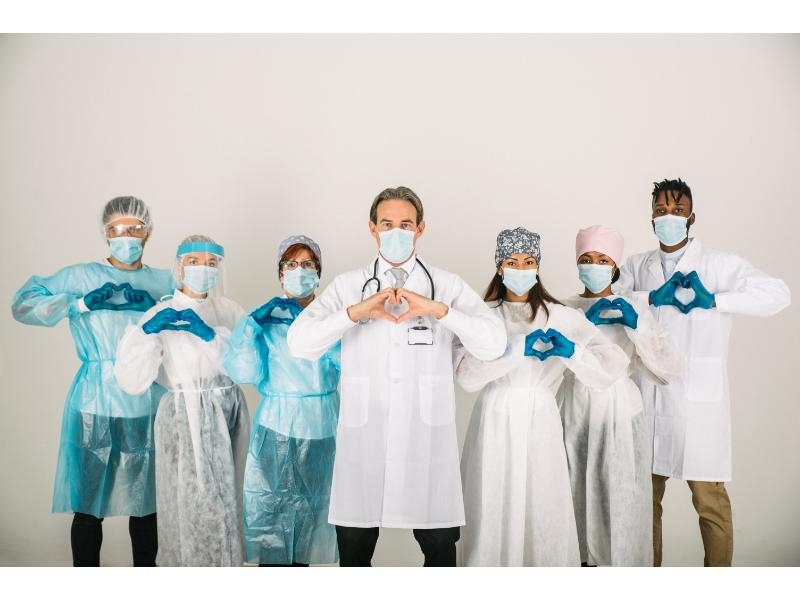
Access and Contact
Members can access Sanitas services through its online platform or using its mobile app, where they can manage appointments and consultations. Additionally, mobile apps are available to facilitate interaction with the medical team.
Request for Medical Appointments
Requesting a medical appointment can be done in multiple ways. Each option offers accessibility to suit the needs of members and ensures they receive the necessary care.
By Telephone
One of the most traditional ways to request an appointment is by phone. Most insurance companies have call centers. Policyholders must provide their policy number and some personal information when they make the call. During this process, they are often offered available dates and times for the appointment they select.

On-line
Digital platforms have made managing medical appointments much easier. Policyholders can access their insurer's web portal. Through it, they have the option to:
- Select the type of consultation and the desired specialist.
- Choose between different schedules depending on availability.
- Receive confirmations and notifications about your appointment.
This method is generally quick and allows for easier management of medical records.
Mobile Applications
Mobile apps have become an essential tool for appointment management. Many insurers offer apps that allow policyholders to request appointments directly from their mobile devices. Typical features include:
- Access to a list of available specialists and medical centers.
- The ability to easily schedule or modify appointments.
- Automatic reminders about upcoming appointments and relevant information.
Apps provide convenience by allowing appointment management anytime, anywhere.
Claims and Authorizations
Should issues arise or additional services be needed, it's important to understand the process for managing claims and authorizations effectively.
Claims Process
Claims can arise for a variety of reasons, such as errors in the service provided or the need for treatments not initially considered. Insurers generally have specific procedures for handling these situations. Some common steps include:
- Immediately notify the insurer of the problem.
- Provide the necessary documentation to support the claim.
- Follow the instructions provided by the insurer to formalize the claim.
It is essential to keep copies of all submitted documentation, as well as obtain confirmation of the process.
Request for Authorizations
Authorizations are often required before proceeding with specific treatments or diagnostic tests. To manage this process, insured members allow their doctor or organization to request the necessary authorization. The process typically involves:
- The presentation of the diagnosis and the recommendation of treatment by the specialist.
- The insurer's review of the information submitted.
- Obtaining an official response regarding the approval or denial of the requested service.
Authorizations are a crucial element in accessing certain services, and it's important to start the process well in advance to avoid delays in medical care.
Data Protection in Health Services
Data protection in the healthcare sector is crucial to ensuring the privacy and security of patient information. This is essential to building trust and ensuring that sensitive data is not compromised.
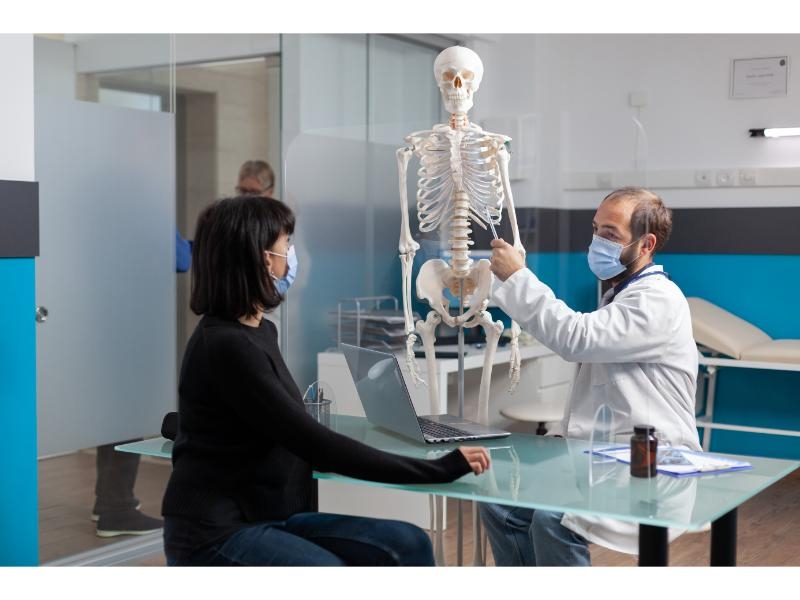
Importance of Data Protection
Data protection in healthcare services ensures that patients' personal and medical information is handled appropriately and responsibly. This includes the management of data about diagnoses, treatments, financial information, and any other relevant information that patients share with healthcare professionals.
Rigorous management of this data contributes to:
- Strengthening trust between patients and medical providers.
- Prevent unauthorized access to sensitive information.
- Reduce the risk of fraud and abuse involving personal information.
- Protect healthcare professionals from potential litigation related to patient privacy.
Current Regulations
There are regulations that govern how personal data should be handled in the healthcare sector. These laws seek to strengthen the privacy and security of patient data, establishing clear obligations for the entities that handle this information.
LOPD (Organic Law on Data Protection)
The Spanish Organic Law on Data Protection (LOPD) focuses on the protection of personal data in Spain. This law establishes the principles and rights related to data processing, as well as the responsibilities of the entities that manage such information.
Some of the highlights of the LOPD are:
- Right to information: Patients must be informed about how their data will be used.
- Consent: Data collection requires the explicit consent of the patient.
- Access and rectification: Patients have the right to access their data and correct any errors.
- Security: Appropriate security measures must be implemented to protect personal data.
GDPR (General Data Protection Regulation)
The General Data Protection Regulation (GDPR) is a European regulation that came into force in 2018 and complements the LOPD (Spanish Data Protection Act). Its objective is to establish a common framework for data protection in the European Union, ensuring that citizens' rights are respected.
The GDPR includes principles such as:
- Data minimization: Only the data necessary for the specific purpose may be collected.
- Limitation on retention period: Data should not be retained longer than necessary.
- Transparency: Patients must be clearly informed about how their data is managed.
- Active accountability: Entities handling data must demonstrate compliance with data protection regulations.
Emergency Services in the Medical Team
Emergency services are essential within the healthcare system, providing immediate assistance in situations requiring rapid medical attention. This type of care is essential for resolving emergencies and offers a variety of options for policyholders in Alicante.
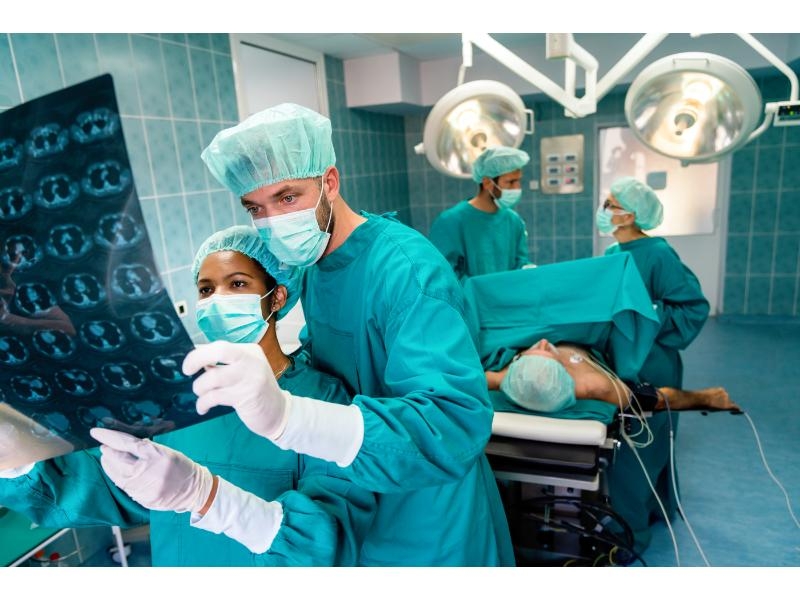
Types of Emergency Services
There are different types of emergency services, adapted to the needs and circumstances of patients. These types are divided primarily and organizationally into the following categories:
- Hospital Emergencies
- Outpatient Emergencies
- Home Emergencies
Hospital emergency departments focus on treating patients who arrive at a medical center in critical condition or with acute illnesses requiring immediate intervention. These services generally operate 24 hours a day, offering medical care at any time of day.
These units can handle a wide range of problems, from trauma and severe infections to complications arising from chronic illnesses. The emergency department staff is highly trained to make quick and effective decisions, ensuring that patients receive the necessary care immediately.
Outpatient emergency services, on the other hand, are intended for patients who are not in critical condition but require immediate medical attention. These services are usually located in clinics or health centers and can treat problems such as minor injuries, mild infections, and mild allergic reactions.
Outpatient care offers options for those who, while not in an extreme emergency, need to be seen promptly to prevent their condition from worsening. These appointments are typically faster and can be ideal for problems that don't warrant a hospital visit.
Home emergency care allows patients to receive medical care in the comfort of their own homes. This service is especially valuable for older adults, those with disabilities, or those who, for health reasons, cannot travel to a medical center.
Healthcare professionals travel to the patient's home to provide medical care, evaluations, and, if necessary, treatment. This approach helps facilitate access to medical care and optimizes patient comfort by avoiding unnecessary travel.

Procedures in Emergency Cases
Emergency procedures are designed to provide prompt and effective medical care. When a patient enters the emergency department, established protocols must be followed to ensure appropriate and safe care.
First, an initial assessment of the patient's condition is performed. This assessment is critical for determining the severity of the condition and prioritizing care. Any necessary diagnostic tests are then performed, such as blood tests, X-rays, or electrocardiograms.
Once the evaluation and relevant tests are completed, the medical team decides on the most appropriate treatment. This may include administering medication, performing minor surgeries, or hospitalization if necessary.
The primary goal in emergency departments is to stabilize the patient and effectively treat the emergency. After initial treatment, the patient is provided with the necessary information about follow-up care, as well as instructions on how to proceed with further care.
These procedures are vital to patient recovery and allow for the proper management of any medical emergency, ensuring that appropriate measures are taken in a timely manner.
Preventive Care in the Medical Team
Preventive care is an essential component of maintaining good health. It involves regular checkups and implementing specific programs for the early detection of diseases, thereby minimizing long-term health risks.

Periodic Checkups
Regular checkups are scheduled medical evaluations intended to monitor a patient's health. These exams help detect potential changes before they become serious problems. It's important to have regular consultations with specialists who can evaluate various aspects of health, from general physical condition to more specific analyses tailored to the patient's needs.
Preventive Health Programs
Preventive health programs are essential for promoting healthy habits and preventing the onset of disease. These programs can include lifestyle recommendations, physical and nutritional activities, and specific medical checkups. Proactive healthcare can make a significant difference in people's quality of life.
Cardiovascular Prevention
Cardiovascular health should be a priority in prevention programs. Risk factors such as hypertension, diabetes, and high cholesterol are often silent conditions that require attention. Regular checkups can include tests such as electrocardiograms, echocardiograms, and blood pressure monitoring. Implementing changes in diet and physical activity levels can significantly reduce the risk of heart disease.
Cancer Prevention
Early cancer detection can make the difference between successful treatment and a late diagnosis. In this regard, it is vital to participate in cancer prevention programs that include screenings such as mammograms, colonoscopies, and blood tests for tumor marker detection. Education about risk factors, such as smoking and sun exposure, is also essential to prevent the development of these types of diseases.
Dental Prevention
Oral health is an integral part of overall well-being. Regular dental checkups can identify problems such as cavities, gingivitis, and other oral conditions before they become serious. Preventive treatments can include cleanings, fluoride applications, and dental sealants. Promoting good oral hygiene and reducing sugar intake are key practices in preventing dental problems.
Family Health Programs in Alicante
In Alicante, there are programs dedicated to promoting family health, addressing the needs of both children and seniors. These programs are essential to ensuring health and well-being at all stages of life.
Children's Health and Pediatrics
Child health is a priority area within Alicante's health programs. Comprehensive care is offered to infants, children, and adolescents, focusing on their development and disease prevention.
Child health services include regular checkups, vaccinations, and growth monitoring. Education campaigns on hygiene, nutrition, and healthy habits are also conducted.
- Regular health checkups to detect any developing problems.
- Vaccinations according to the schedule established by the health authorities.
- Guidance on nutrition and lifestyle appropriate for each stage of growth.

Geriatric Health
Geriatric healthcare is essential, given the aging population. In Alicante, specific programs are offered that address the needs of this age group, ensuring healthy and active aging.
Geriatricians work on the prevention, diagnosis, and treatment of the most common conditions in older adults, as well as promoting patient autonomy.
Diagnostic Tests in Geriatrics
Diagnostic tests in geriatrics are crucial for identifying diseases and assessing the health conditions of older adults. The most common tests include:
- Clinical analysis to assess general health status.
- Electrocardiograms to monitor heart function.
- Imaging tests, such as X-rays and ultrasounds, to detect specific pathologies.
- Cognitive assessments to identify problems with memory and other mental functions.
Pathologies Treated and Techniques Used
In the geriatric field, multiple pathologies are addressed, among which the following stand out:
- Cardiovascular diseases, such as hypertension and arrhythmias.
- Joint conditions, such as arthritis and osteoarthritis.
- Metabolic disorders, such as diabetes.
- Neurological problems, including Alzheimer's and other dementias.
The techniques used for treatment include physical, pharmacological, and psychosocial therapies, which seek not only to treat the present pathologies but also to optimize the patients' quality of life.
Dental Medical Team in Alicante
The dental medical team in Alicante provides access to a variety of essential oral care services and treatments. This system facilitates care for a variety of dental needs, ensuring timely and quality treatment.
Dental Services Offered
Access to a dental medical directory allows policyholders to benefit from a wide range of services. These include:
- General dental examinations.
- Dental x-rays.
- Dental restoration treatments.
- Root canal treatments.
- Tooth extractions.
- Orthodontic and dentofacial orthopedic services.
- Cosmetic dentistry, including whitening and veneers.
- Preventive services, such as cleanings and fluoridation.
Dental Techniques and Treatments
Within the dental medical field, various techniques and treatments are implemented to address specific dental problems, ensuring care tailored to each patient.
Orthodontics
Orthodontics focuses on correcting the position of teeth and jaws through the use of braces. This treatment is crucial for achieving proper dental alignment, which in turn contributes to better chewing and facial aesthetics.
Techniques used in orthodontics include:
- Metal brackets.
- Aesthetic porcelain braces.
- Lingual orthodontics, which is placed on the inside of the teeth.
- Clear aligners, which offer a more discreet option.
Each technique has its own particularities and is selected based on the patient's specific needs and initial diagnosis.
Preventive Dentistry
Preventive dentistry focuses on preventing the development of dental diseases. It is based on patient education in oral hygiene habits, as well as regular checkups and treatments that help maintain dental health.
Major preventive dentistry practices include:
- Semi-annual or annual dental cleanings to remove plaque and tartar.
- Fluoride application to strengthen tooth enamel.
- Dental sealants, which protect molars from cavities.
- Guidance on brushing and flossing techniques.
These measures not only prevent cavities and periodontal disease, but also promote optimal long-term oral health.

Information and Update of the Medical Chart
Updating and accessing medical information is essential to ensuring that insured persons in Alicante receive quality medical care from appropriately accredited specialists. Staying informed is crucial for efficient use of health services.
How to Consult the Updated Medical Chart
Checking the updated medical record is a relatively simple process, which can be done through various platforms and methods. It is recommended that policyholders use the following tools to access the most up-to-date information:
- Insurance Company Website: Most insurance companies offer easy access to their medical directory online. Through their official websites, policyholders can search by specialty, medical center, and available professionals.
- Mobile Apps: Apps developed by insurance companies allow users to access their medical directory from anywhere. These apps typically include features for scheduling appointments, making inquiries, and reviewing the list of available specialists and centers.
- Customer Service: If you have questions or problems accessing information, contacting your insurance company's customer service can be very helpful. This service can provide detailed information about recent changes to your medical history.
Importance of Staying Informed
The importance of staying informed about changes in your medical record lies in several factors that directly impact the medical care you receive. Some of the most notable reasons include:
- Specialty Updates: Insurers may introduce new specialties or modify existing ones. Being aware of these changes allows policyholders to access treatments and services that were previously unavailable.
- Professional Availability: Some doctors or clinics may change their status within the medical directory. Staying informed helps policyholders choose professionals specifically covered by their policy.
- Access to New Techniques and Treatments: Medicine is constantly advancing, and with it, the available diagnostic techniques and tests. Knowing the latest medical information allows patients to receive the latest innovations in medical care.
- Facilitates Appointment Planning: With an updated list of available specialists, you can plan medical care more effectively, optimizing time and access to the required services.
Frequently Asked Questions about the Medical Team in Alicante
This section addresses the most common questions related to the medical directory in Alicante, thus facilitating the understanding of this essential tool for policyholders.
How to Know if a Doctor is on the Medical Directory?
Checking whether a doctor is on an insurance company's medical roster is a simple process and can be done through various channels. Policyholders have several options to obtain this information:
- Consult the insurance company's official website, which generally offers an updated list of professionals on its medical team.
- Access the company's mobile app, if available. These apps often include a search engine to quickly find doctors and health centers.
- Call the insurer's customer service department, where you can receive direct information about adding a doctor to your medical directory.
It's essential to have the policy number on hand, as it may be requested during the phone consultation or on the digital platform. This ensures that the information provided is accurate and related to the insured's specific insurance.
Steps to Change Doctors within the Chart
Changing doctors within a medical plan is a generally structured process that allows the insured to find a physician more suited to their needs. The typical steps for making this change are described below:
- Review the available options in the corresponding medical chart, using the channels mentioned above.
- Once a new doctor has been selected, the change can be managed in several ways:
- By phone, contacting the insurer's customer service.
- Through the insurance company's website, where there is often a specific section for managing doctor changes.
- Using the mobile app could simplify the process and allow for quicker changes.
- Ensure that the change has been confirmed and that the new doctor is actually on the insurer's medical record.
It's advisable to carry out this process during periods when professional changes are normally permitted, as some insurers set specific deadlines for this type of change.

What to Do in an Emergency
In emergency situations, it's crucial to act quickly and efficiently to access necessary medical care. The following are the steps to take:
- Go to the emergency room at the medical center that belongs to the insured's medical plan. This ensures that the care received is adequately covered under the policy.
- If you're not sure what to do, you can call your insurance company's emergency number for specific instructions on where to go and what procedures to follow.
- Keep necessary documentation, such as your insurance card and ID, on hand to facilitate the emergency room admission process.
Emergency care not only covers medical emergencies but also situations requiring immediate attention, such as accidents or serious health complications. Acting quickly and knowing the resources available within the medical team is essential to ensuring an adequate response to any eventuality.
